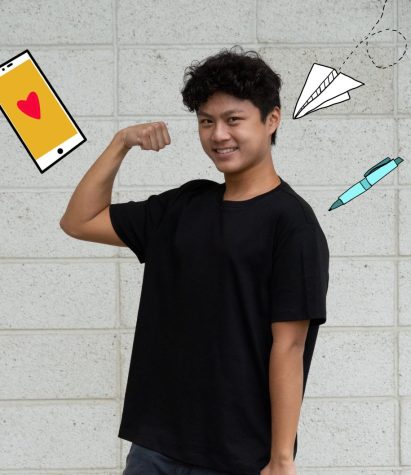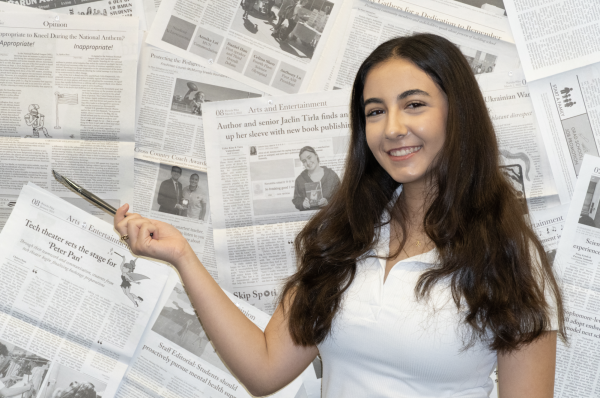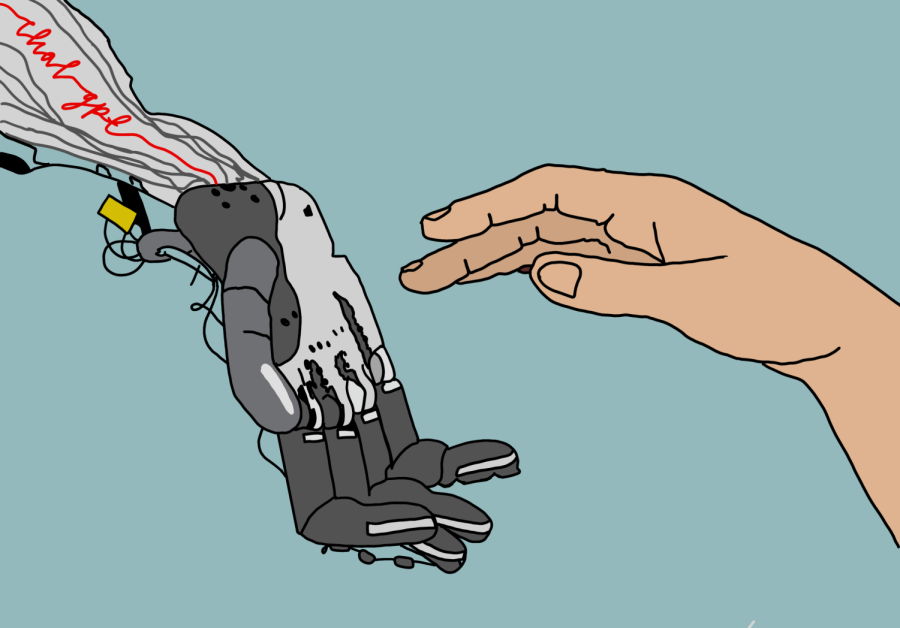Reshaping Education: How Students and Schools Can Responsibly Adopt ChatGPT
In the months following the chatbot’s public release, ChatGPT experienced rapid growth— amassing over 100 million users from November to January. For comparison, this same feat took the popular entertainment app, TikTok, over nine months to achieve, according to Business Insider.
“ChatGPT, or Generative Pre-trained Transformer 3, is an advanced natural language processing model developed by OpenAI. With the ability to generate human-like responses and assist with writing assignments, ChatGPT can help students learn and develop important skills.”
Articulately written in comprehensive AP style, ChatGPT produced the paragraph above in a matter of seconds. ChatGPT is a breakthrough technology that has provided individuals with the ability to produce well-composed texts at the user’s command.
Although there are a series of ethical concerns regarding the use of ChatGPT, students should be permitted to utilize this resource in moderation, as it has the potential to ultimately benefit their learning.
Since the technology’s surge in popularity, the AI tool has faced a rise in scrutiny after students began utilizing ChatGPT to fully complete their assignments. Educators across the country have already begun altering their syllabi and codes of academic honesty to meet ChatGPT head-on, with the New York City education district being one of the first to ban the use of the technology in early January, according to The Guardian.
With the continued development of ChatGPT and other AI resources, it is evident that the world will need to adjust and adapt, according to OpenAI CEO Sam Alton in an interview with Business Insider. However, the outcome of these changes does not necessarily need to be for the worst; academic dishonesty is not the only outcome AI brings to the table.
Although some may say that ChatGPT’s potential promotion of plagiarism outweighs the benefits, it could be argued that the vast majority of the AI’s risks are associated with the way students approach the technology rather than a fault of the technology itself, according to USA Today.
Responsible use of ChatGPT can open a plethora of avenues far beyond essay writing or assignment completion. For instance, at the University of Pennsylvania, one professor found that allowing students to use ChatGPT as an investigative tool enabled a greater understanding of the material, as it forced students to fact-check the AI’s produced responses, according to NPR.
“When students think about using ChatGPT, they usually only think about essay writing, but there are a lot of other interesting uses for the tool,” senior Gavin Thornhill said. “For example, I recently had a debate to prepare myself for, and I had ChatGPT act as the other side of the debate. It was actually super cool, and the AI was able to point out different flaws in my logic and vice versa.”
While there are risks involved with permitting academic usage of Chat GPT, the AI tool presents itself as a valuable academic resource for students when mindfully used.
Your donation will support the student journalists of Portola High School. Your contribution will allow us to purchase equipment and cover our annual website hosting costs.

Skyller Liu is a staff writer making his debut on the Portola Pilot. This year, Skyller is preparing to embark on the treacherous road that lies ahead,...

Shaina Taebi is the Backpage Editor for her third year in the Portola Pilot. For her final year she is excited to spend class time drawing more editorial...




